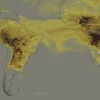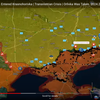Gildra? til ađ veiđa mús?
- SEP 1, 2015
Hvernig eitt ríki slapp undan stjórn Wall Street og bjó til bankakerfi sem er 83% í eigu heimamanna
- Stacy Mitchell
- ARTICLE
Across the country, people are suffering the consequences of a banking system that’s dominated by a handful of giant banks. Local businesses can’t get the credit they need to grow. College graduates are stumbling under the weight of student debt with sky-high interest rates. Neighborhoods are being stripped of their assets through predatory mortgages and consumer loans. And taxpayers are on the hook for municipal finance schemes peddled by Wall Street and loaded with hidden costs.
Banking has become untethered from communities, and indeed, from the very economy it is supposed to serve. The nation’s biggest banks have managed to invert the natural order of things, so that their profitability is no longer predicated on the health of the broader economy. Instead, as much recent scholarship has shown, the growth of these giant conglomerates is actually harming the rest of the economy.
Remarkably, one state has largely escaped this predicament: North Dakota.
In North Dakota, the banking sector bears little resemblance to that of the rest of the country. North Dakotans do not depend on Wall Street banks to decide the fate of their livelihoods and the future of their communities, and rely instead on locally owned banks and credit unions. With 89 small and mid-sized community banks and 38 credit unions, North Dakota has six times as many locally owned financial institutions per person as the rest of the nation. And these local banks and credit unions control a resounding 83 percent of deposits in the state — more than twice the 30 percent market share that small and mid-sized financial institutions have nationally.
What has enabled North Dakota to go its own way? Much of the answer lies in the Bank of North Dakota, the only state-owned bank in the country. Since 1919, when it was founded to free North Dakotans from the tyranny and crushing interest rates of Minneapolis banks, BND has worked to nurture the state’s economy and communities. It continues to grow, nearly quadrupling in size since the early 2000s, and now has a $3.9 billion lending portfolio.
BND does most of its lending in partnership with local banks and credit unions, granting its support to their productive lending activities. About half of the bank’s loan portfolio consists of loans to small businesses and farms, and with its aid, North Dakota community banks averaged 49 percent more lending for small businesses over the last decade than those in South Dakota, and 434 percent more than the national average.
The other half of BND’s portfolio is residential mortgages and student loans. Thanks to BND, roughly 20 to 25 percent of the state’s mortgage debt is held and serviced within North Dakota, and students can directly access loans for their education with some of the lowest loan rates in the country.
While the publicly owned BND might well be characterized as a socialist institution, it has had the effect of enabling North Dakota’s local banks to be very successful capitalists. Over the last three years, they’ve operated more efficiently, and earned a return on their capital nearly twice that of the nation’s largest 20 banks, according to federal data.
They’ve earned these returns while doing good by the state’s residents, and also for state and municipal governments. Over the last 21 years, BND has generated almost $1 billion in profit, and returned nearly $400 million of that, or about $3,300 per household, to the state’s general fund. That influx provides support for education and other public services, while reducing the tax burden on residents and businesses. The rest has been plowed back into BND’s capital reserves, enabling the bank to grow its lending.
To learn more about the Bank of North Dakota, read our detailed and graphic-rich backgrounder.
000
Get ILSR's Flagship Newsletter
Top of Form
Email Address *SUBSCRIBE
Bottom of Form
Institute for Local Self-Relianc
Made with by creatives with a conscience
- Institute for Local Self-Reliance (ilsr.org)
000
- Institute for Local Self-Reliance (ilsr.org)
Bloggar | Breytt 20.8.2024 kl. 02:28 | Slóđ | Facebook | Athugasemdir (0)







